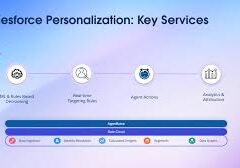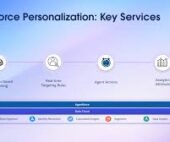A Salesforce Platform Manager serves as the human interface between the business and the Salesforce platform, taking on the responsibility of overseeing the entire management of the platform. This role involves leading project teams, collecting requirements, designing solutions, and implementing configurations on Salesforce.com.
In contrast, Product Managers primarily concentrate on expanding their user base, financial metrics, and ensuring customer satisfaction with the product. Platform Managers, on the other hand, have a more internal focus, being oriented towards technical aspects and architecture. They are not customer-facing and have a greater emphasis on technical and architectural considerations. Not to say they don’t need good people and communication skills, but they interact as much with the platform as with team members.
The role of a Platform Manager encompasses being the primary administrator of the software, orchestrating its setup, and overseeing ongoing maintenance. They are tasked with establishing the initial parameters for the website and managing all constituent data in a pubic sector instance.
For Platform Product Managers, the primary goal is to deliver outcomes that contribute to business scalability and achievement of goals. Effective management with different teams is crucial for success, and collaboration, communication, and recognition of other teams play a key role in their responsibilities.
Platform Services Managers are responsible for initiating and maintaining the operation of application processes. They ensure the continuous running of processes, which is essential for users to access the system and run reports. The process management framework involves three key process utilities: sapmon, sapmgr, and sap.
If your core Salesforce team is missing a solid Salesforce Platform Manager, reach out to Tectonic today for assistance.














